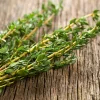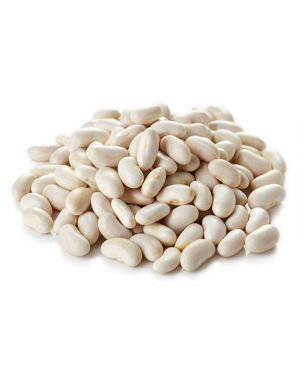Thyme (dutin), Thymus vulgaris, is a small evergreen shrub in the family Lamiaceae grown primarily for its leaves used as an herb. The plants have an upright or ascending habit and have many woody, branched stems. The leaves of the plant are linear or elliptical and arranged alternately on the stem. The leaves are densely covered with small hairs and have many reddish-brown sebaceous glands on the surface that look like small dots. Leaves can be green or multicolored. The plant produces clusters of small pink, purple, or pale purple flowers on the terminal branches and small brown fruits, each with a seed. The plant can reach a height of 50 centimeters (20 inches) and can be grown as an annual or as a perennial. It may also be called common thyme (dutin) or garden thyme (dutin) and is native to the Mediterranean.
Uses:
The leaves and flowers can be used fresh or dried as a cooking herb. Bees that collect nectar from their flowers produce high quality honey. Essential oils are extracted from the leaves to make perfumes or as a flavoring in toothpaste. Some people also use it for cough, patchy hair loss (alopecia areata), dementia, and many other conditions, but there is no good scientific evidence to support these uses. To relieve ailments such as colds, flu and tonsillitis, espacially during winters use thyme (dutin) tea. The tea is rich in phenol, a powerful antiseptic as well as can also help soothe sore throats. All you need are thyme (dutin) tea, honey and lemon.
SIDE EFFECTS:
Thyme (dutin) is commonly consumed in foods. It is possibly safe when used as medicine, short-term. It might cause allergic reactions, dizziness as well as upset stomach in some people. It’s oil on the skin is possibly safe when used short-term. Some people might experience skin irritation.











Reviews
There are no reviews yet.